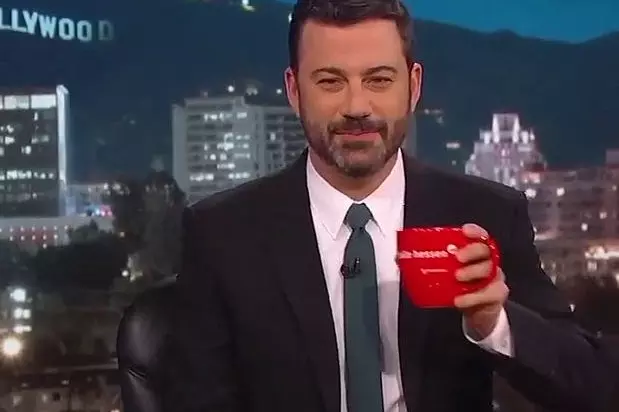- AdventHealth

Many of you may remember when Katie Couric underwent a colonoscopy on The Today Show back in 2000. Couric's husband had recently passed away from colon cancer at the young age of 42, and she was determined to be vigilant about her own health while raising public awareness of the disease. It worked: nationwide, there was a 20% uptick in colonoscopies, dubbed the Couric effect.
Nearly two decades later, Couric was by late-night host Jimmy Kimmel's side for his very first colonoscopy a segment that recently aired on Jimmy Kimmel Live! The benefits of such segments are twofold: they stress the importance of this life-saving procedure and show people that it's really not as bad as they may fear.
Watch Dr. Kashi explain the importance of colonoscopies here.
Here's a closer look at colonoscopy, and how regular screenings can help keep you cancer-free.
Colonoscopy: What it Is and How it Works
Colonoscopy is the primary screening method for colorectal cancer. During the procedure, a tiny camera attached to a thin, flexible tube is used to view the colon. This allows a doctor to inspect the lining of the colon and detect any potential problem areas.
With a colonoscopy, we might find polyps that we can remove to help prevent colon cancer, explains Dr. Kashi. If polyps are discovered, most can be removed on the spot to stop cancer before it starts, though larger polyps sometimes require follow-up appointments.
Beyond footage from the colonoscopy itself, the Jimmy Kimmel Live! segment also showed Kimmel prepping for his procedure a process that involves drinking a special fluid to help clean out the colon.
Many people are concerned about the prep for colonoscopy, but they have gotten better, assures Dr. Kashi. Improved methods include better-tasting liquids and smaller volumes, making prep a lot easier to swallow.
Why Early Detection Is So Important
Colon cancer is the second leading cause of death in the U.S., says Dr. Kashi. But screening has helped us decrease that rate by almost 50 percent. According to the American Cancer Society, rates for new cases of colorectal cancer have been falling by about 2.7 percent each year for the last decade, due in large part to routine colonoscopies.
One reason why colonoscopy screenings are so important is that colorectal cancers often show very few or no signs. It may occur completely randomly and have no symptoms at all, says Dr. Kashi. With colonoscopy, doctors can identify abnormalities in the colon before they develop into cancer, and long before a person feels any physical effects of the disease.
The Who of Colonoscopy
In most cases, 50 is the recommended age for men and women to start getting screened for colorectal cancer. However, certain populations may require earlier or more frequent screenings.
African Americans have a 20 percent increased rate of colon cancer, so we must start screening them at age 45, says Dr. Kashi. Individuals with a family history of cancer or other risk factors are another group that may benefit from earlier screenings.
Three Reasons Not to Fear a Colonoscopy
Still feeling apprehensive? We understand. But advancements in gastroenterology have made the procedure easier and less invasive than ever. Consider these facts:
- They're over in about 30 minutes. There are not many things you can do in as little as 30 minutes to potentially save your life, but a colonoscopy is one of them.
- They're virtually pain-free. Before the colonoscopy, patients are given sedating medicine through an IV to help relieve stress, pain and discomfort. Not only do patients not feel anything during the procedure, they're virtually unaware its even happening!
- They save lives. Cancers of the colon and rectum are extremely common, but they are also some of the most curable when detected early. In fact, 90 percent of people live five or more years when their colorectal cancer is found early through screening.
__
Lets face it: a colonoscopy is never going to be something we look forward to. But with regular screenings, millions of people can look forward to a life free of colorectal cancer.
Schedule your colonoscopy today.



